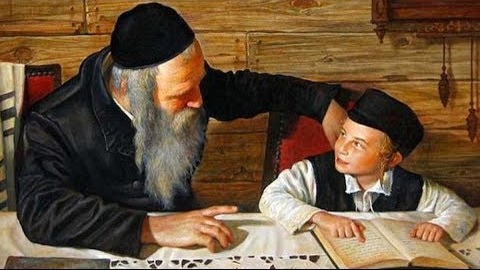Adapted from the writings of Dayan Yitzhak Grossman April 18, 2024 AP News reports: A…

Bais HaVaad on the Parsha, Parshas Vayeitzei
Kisslessness
Excerpted and adapted from a shiur by HaRav Yechiel Biberfeld
December 1, 2022
And Lavan arose early in the morning and kissed his sons and daughters and blessed them…
Bereishis 32:1
The Rama (O.C. 98:1) writes that one is forbidden to kiss his young children in shul, to instill in his heart that there is no love like the love of Hashem. According to the Orach Ne’eman (O.C. 98:5), this halacha applies in shul at any time, not only during davening, and one may not kiss older children in shul either. R’ Moshe Feinstein is reported[2] to have disagreed about the first point and observed that since the Rama codifies this halacha in Hilchos Tfilah and not in Hilchos Bais Haknesses, the issur applies only during davening.
The She’arim Behalacha notes that the Gra (O.C. 98) in connection with that Rama references a Zohar: A talmid should not recite the Amidah behind his rebbi, because it will appear when he bows that he is showing more respect to his rebbi than to Hashem. Since the Zohar specifically refers to the Amidah, it would seem to support R’ Moshe’s view that the prohibition of kissing children in shul applies only during davening.
Rashi (Avodah Zarah 17a) writes that children would kiss their parents or other elders when they exited the shul after davening. The Bais Yisrael infers that this is allowed in shul, because it demonstrates kavod to individuals as required by the Torah, and it is not considered an affront to Hashem’s honor. Similarly, the Ben Ish Chai (Year 1, Vayikra 11) writes that it was customary in Baghdad for the congregants to kiss the chacham after davening to show him honor. But he does state that one should not kiss others, on account of the Rama. Accordingly, he would forbid kissing a ba’al simcha or bar mitzvah boy in shul.[3]
[1] R’ Yitzchak Zilberstein (Aleinu Leshabeiach, Shmos p. 579) allows a father to kiss his injured and crying child, because he is trying to calm him rather than express love.
[2] See Meged Giv’os Olam by R’ Michel Shurkin (Vol. 1 p. 92).
[3] Other Sphardi poskim, like the Or LeTziyon (Vol. 2, 45:55), write that adults who kiss each other after an aliyah have upon whom to rely.





